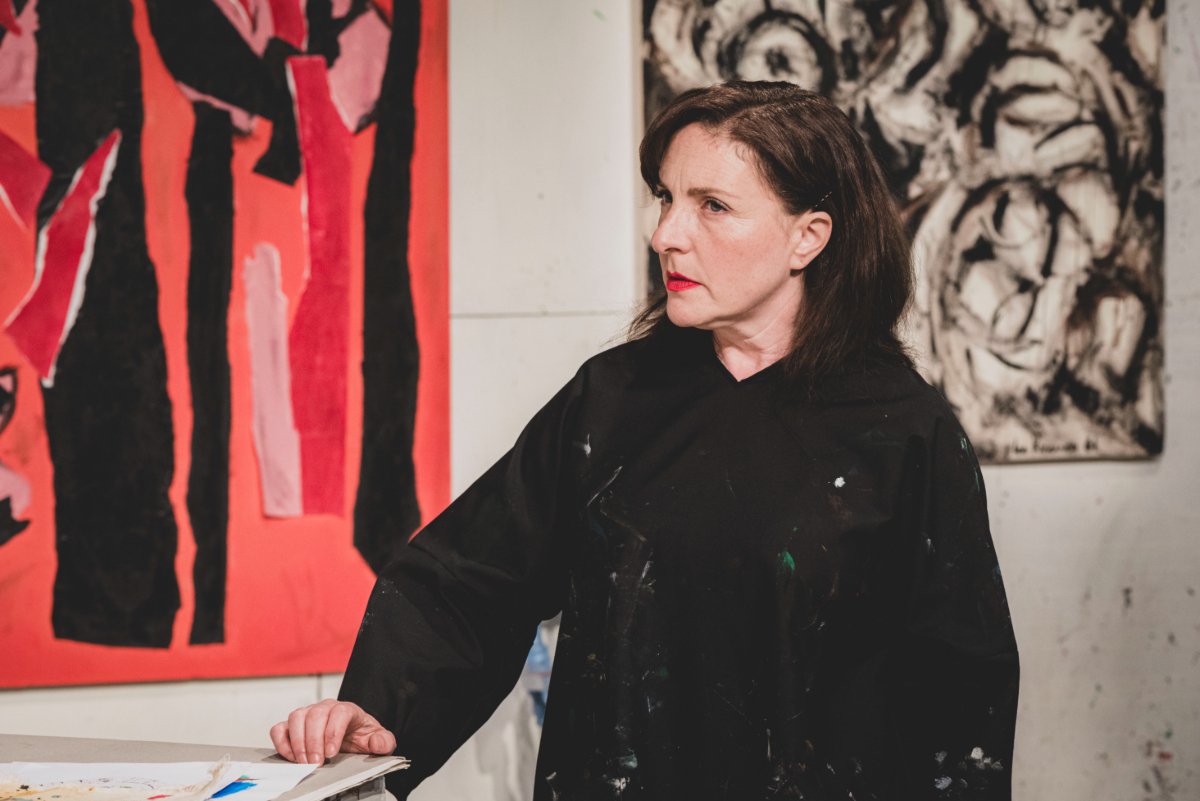Like fellow New Yorker, Lee Miller, Lee Krasner changed her given name, the better to be accepted into what she called "The Boys Club" of 20th century Modern Art. Like Miller, she was known more for her working and romantic partnership with a major artist – for Man Ray, read Jackson Pollock.
And like Miller, Lee Krasner is now belatedly acknowledged as a major artist in her own right – though she does not have a solo Tate show, as Miller does this Autumn (at least not yet). We open on her working in her Long Island studio, surrounded by her paintings, canvases that you can’t quite place – sure, a bit of Pollock here and there, a bit of Rothko too, even a bit of Matisse, but definitely her, so don’t mention the M-word. That’s not amusing at all to those many women damned with the label, that most condescending of backhanded compliments. Soon, a lad arrives with the groceries, turns off the radio – as ever, a little free jazz goes a long way – and, framing device completed, we’re off. Helen Goldwyn (pictured above) gives Krasner an irascibility, an impatience with herself as much as with the inquisitive boy who wants some advice on going to art school and, as we discover, something a little more tangible too. Will Bagnall is very convincing as one of those “Yes Ma’am” American kids who hadn’t yet touched base with the 1960s counterculture beginning to rev up even in the chi-chi Hamptons, and his Hank repeatedly prompts and pricks Krasner’s ego, unmasks her bitterness and, ultimately finds her humanity.
Helen Goldwyn (pictured above) gives Krasner an irascibility, an impatience with herself as much as with the inquisitive boy who wants some advice on going to art school and, as we discover, something a little more tangible too. Will Bagnall is very convincing as one of those “Yes Ma’am” American kids who hadn’t yet touched base with the 1960s counterculture beginning to rev up even in the chi-chi Hamptons, and his Hank repeatedly prompts and pricks Krasner’s ego, unmasks her bitterness and, ultimately finds her humanity.
We learn of her struggle for recognition, of her work with, and not mere inspiration for, her husband and of her splendidly opinionated view of artists, dealers and critics. Goldwyn could easily topple into cliché here, but the scenes with Bagnall come off well, suffused by a warmth and mutual decency, leading to an ending that you’ve guessed long before Krasner had all but crumpled at Hank’s gauche question about her not having kids.
What works less well are the scenes inside Krasner’s head when she is "visited" by Pollock, 20 years dead at the time the play is set. That’s no fault of Tom Andrews, who gives "Jack the Dripper" all the alpha male boorishness we’re expecting, as well as some very pithy remarks about his wife’s art and abstract art more generally. But the successful artist as an entitled, heartless, iconoclastic, albeit talented, bastard feels too hackneyed a characterisation – though I’m sure the playwright, Cian Griffin, would protest, with some justification, that that’s exactly what Pollock was.
Director, Jason Moore, keeps the pace high, the all-through running time of 90 minutes user-friendly, but he never really solves the problem of getting Pollock on and off Ian Nicholas’s well-observed set. I was beginning to expect boos for the villain after three or four entrances, as it was all getting a bit Abanazar in Aladdin.
Krasner is a fascinating artist, maybe not quite as fascinating as Miller (after all, who is?) and this play catches much of what makes her so. What’s missing is a ringside seat in New York’s maelstrom of Modernism, when prices and prestige rocketed and the avant-garde became not just art school cool but mainstream cool too.
Ultimately, I can’t help thinking that I wasn’t alone in wanting a little less of the delivery boy in smalltown Springs and a little more of Peggy Guggenheim in mad Manhattan.















Add comment